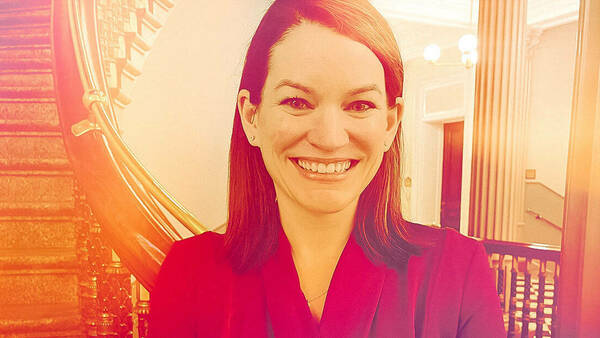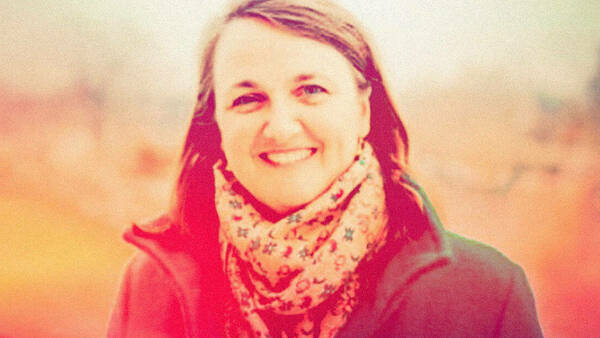In December of 2019, while Dr. Kristin Andrejko ’19 was hard at work in her first year of graduate school at the University of California-Berkeley studying infectious disease epidemiology, she saw an infectious disease health alert on Twitter. A pneumonia-like illness was beginning to spread in China. The details concerned her. Andrejko mentioned it to her advisor the next day.
What happened next is well documented. As the disease continued to escalate, Andrejko communicated with her advisor in person on a weekly basis throughout January. Then, in February, she walked into his office one day to find it empty. He, like millions of Americans in the coming months, decided that physically showing up to work was no longer safe. What seemed unbelievable became a reality for Andrejko and all Californians on March 16, 2020, the day the state went into lockdown as a result of the rapidly spreading COVID-19 virus. It just so happened to be her birthday.
While the months that followed moved at a snail-like pace to most, Andrejko could not have been busier. Life as a graduate student was already hectic. Now, during a global health crisis, she was presented with more challenges as her focus shifted to the most significant epidemiological event in memory. Staying up-to-date with the developing disease and its numerous variants proved taxing for Andrejko.
“Looking back on it, I was definitely burned out,” Andrejko says. “But,” she continues, “I was also really invigorated by what I was doing.”
While COVID-19 challenged everyone, it presented Andrejko with a unique opportunity. The publishing process for peer-reviewed journals in science is typically a long one. For instance, Andrejko recently had an article published in January 2023 illustrating the need for a first COVID-19 vaccine booster shot, which the CDC recommended in November 2021. In 2020, however, the review process became more streamlined when the science community realized that the coronavirus necessitated that results of studies be disseminated more quickly. Andrejko’s research became published more rapidly, and referenced by well-read outlets.
“Instead of it just going to sit in an academic journal to be read by other researchers, it was being cited in CNN and The New York Times. That just doesn’t often happen in (my) field. It felt like I was working toward something really meaningful,” Andrejko says.
Andrejko went on to collaborate on ten peer-reviewed research articles centered on a wide range of epidemiological and COVID-19 topics, from mask effectiveness to school closures. Her research detailed specific odds of testing positive based on whether or not one was wearing a mask (and if so, what type), the effectiveness of NPIs (non-pharmaceutical interventions), the effectiveness of vaccines at preventing the spread of COVID-19, and more. In addition to writing papers, Andrejko also partnered with the California Department of Public Health to lead a case-control study on COVID-19, working with over 30 student interviewers to make the study possible. She credits those around her for her success.
“Surrounding yourself by a really collaborative team who’s going to push you to pump out high-quality science is, I think, what’s most important at the end of the day,” she says. “Finding ways to be able to motivate and support (others) turned out to be one of the most critical aspects of (our work)... without that study team, none of this work would have been possible.”
Though she is most known in the scientific community for her graduate work at Berkeley and in her current role as an epidemiologist for the CDC — where she interned one summer as an undergraduate — Andrejko’s roots in her field date back to her time at Notre Dame.
“I learned about public health when I was at Notre Dame in a few of the courses, and [in] some of the summer experiences that Notre Dame supported me through grants,” she says. “There was one really phenomenal professor — professor Marie Donahue — who taught a foundations of public health and global course that I still remember to this day fondly. (It) really motivated me and invigorated me to pursue this career.”
Andrejko was part of the Hesburgh-Yusko Scholars Program, a comprehensive, merit-based scholarship and leadership-development program that supported Andrejko in internships ranging from malaria research in South Africa to interning for the World Health Organization in Geneva. Additionally, she was part of the Glynn Family Honors Program and graduated cum laude with a degree in science-business in 2019. Most recently, she was named a 2022 Domer Dozen honoree, one of a group of outstanding alumni ages 32 and under that is selected annually by the Notre Dame Alumni Association and YoungND for their contributions in the areas of faith, service, learning, and work.
Thankfully, transmission and death rates for COVID-19 are much lower today than at the disease’s peak in 2020. With the pandemic no longer an urgent priority for Andrejko and her research, she has started to tackle some new challenges. Currently, she’s working in the Division of Bacterial Diseases for the CDC (whereas COVID-19 is a viral infection) and many of the same skills carry over. “I could see myself being there for quite some time, because it’s a really great place to be,” Andrejko says.
COVID-19 reminded everyone that no one knows exactly what is going to happen next. But Andrejko has proven she can handle it. “To be working in public health during the COVID pandemic and be working on vaccine effectiveness studies, your work felt like it had a lot of meaning,” Andrejko says. “You were pretty inspired (by the results).”



